30 Environmental Science Careers: How To Be an Earth Scientist
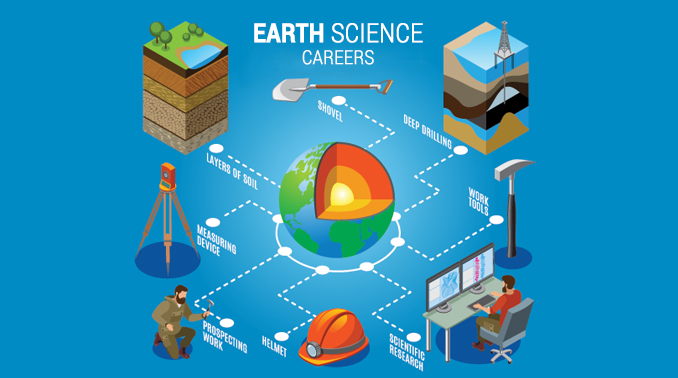
30 Environmental Science Careers
This list of 30 Earth Science careers has everything you need to know to carve your own career path as an Earth scientist.
In a nutshell, it’s your Earth Science career kick-start.
Whether you’re new to the industry or a seasoned pro, we break down the top Earth Science careers that employers are searching for.
Bottom line:
Focusing on expanding Earth Science careers can take some of the struggles out of your search.
1. Environmental Scientists

An environmental scientist is a specialist who studies the natural world and human impacts on it, aiming to understand and address environmental issues and promote sustainable practices.
Environmental scientists understand how the natural world interacts with its surroundings. Often, they consult on how construction projects will impact the natural environment.
Among all Earth Science careers, environmental scientists are the all-encompassing job title. It’s not specific exactly what you will work on as an environmental scientist.
| Average Salary | $73,230 ($45,000 to over $120,000) |
| Percent of Earth Science Careers | 41% |
| Job Trend | Faster than average |
| Level of Education | Bachelor’s Degree or higher |
| Work Setting | Office, outdoor, or laboratory |
2. Biologists

A biologist is a scientist who studies living organisms, their interactions, and the underlying mechanisms governing life’s processes.
Biologists work with wildlife, marine life, and vegetation. They analyze how living things, flora, and fauna are composed including their structure and composition.
For example, marine biologists understand ocean life. But wildlife biologists may specialize in birds, amphibians, and mammals.
| Average Salary | $65,000 ($45,000 to over $100,000) |
| Percent of Earth Science Careers | 13.7% |
| Job Trend | Average |
| Level of Education | Bachelor’s Degree or higher |
| Work Setting | Office, outdoor, or laboratory |
3. Geologists
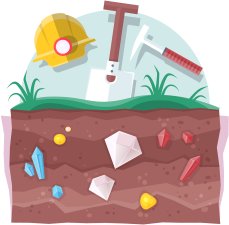
A geologist is a scientist who studies the Earth’s physical structure, composition, and processes, including the formation of rocks, minerals, and landforms.
Geologists study bedrock and surface rocks. More specifically, they best understand how Earth’s landforms and rock change over time.
A geology career relates rocks with the physical/chemical structure and the processes that act on them.
| Average Salary | $84,000 ($55,000 to $120,000) |
| Percent of Earth Science Careers | 9.1% |
| Job Trend | Faster than average |
| Level of Education | Bachelor’s Degree or higher |
| Work Setting | Office or outdoor |
4. Geotechnical engineers
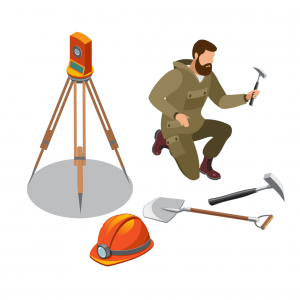
A geotechnical engineer is a professional who specializes in analyzing and designing structures based on the properties and behavior of the Earth’s materials, such as soils and rocks.
Geotechnical engineers understand the behavior of earth materials. For example, they interpret rock and soil samples to investigate subsurface conditions.
In construction design, they contribute to understanding slope stability and types of foundations.
| Average Salary | $84,000 ($60,000 to $120,000) |
| Percent of Earth Science Careers | 9.1% |
| Job Trend | Faster than average |
| Level of Education | Bachelor’s Degree or higher |
| Work Setting | Office or outdoor |
5. Soil scientists
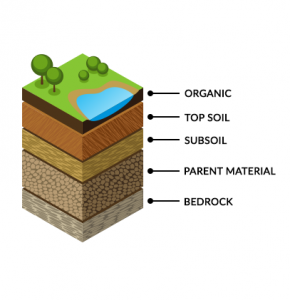
A soil scientist is a professional who investigates and analyzes the properties, composition, and ecological significance of soils, often working to improve soil quality and sustainability.
Soil scientists or pedologists study how soils relate to a natural resource. This includes soil formation factors, classification, physical, chemical, and fertility properties.
Pedology and edaphology are the two main branches of soil science. Soil scientist careers work in areas such as crop productivity and even pipeline planning.
| Average Salary | $62,910 ($45,000 to over $100,000) |
| Percent of Earth Science Careers | 6.2% |
| Job Trend | Faster than average |
| Level of Education | Bachelor’s Degree or higher |
| Work Setting | Office, outdoor, or laboratory |
6. Foresters
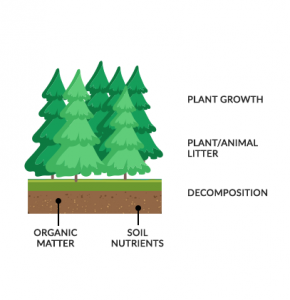
A forester is an expert who manages and conserves forests, making decisions regarding their health, sustainability, and responsible use.
Forestry careers specialize in the way we manage, plant, conserve, and harvest forests.
Foresters can spend a significant amount of time in remote areas and forested areas. The key focus is on tree identification, timber harvesting, and silviculture.
| Average Salary | $60,970 ($45,000 to $90,000) |
| Percent of Earth Science Careers | 4.0% |
| Job Trend | Slower than average |
| Level of Education | Certification or Bachelor’s Degree |
| Work Setting | Office or outdoor |
7. Agronomists

An agronomist is a professional who specializes in the science and practice of crop and soil management to enhance agricultural productivity and sustainability.
Agronomist careers focus on crop production and applying new technologies. Agronomists study plant science to improve efficiency in crop production.
In contrast, some agronomists specialize in improving the safety and agricultural products.
| Average Salary | $62,910 ($45,000 to $90,000) |
| Percent of Earth Science Careers | 2.2% |
| Job Trend | Faster than average |
| Level of Education | Bachelor’s Degree or higher |
| Work Setting | Office, outdoor, or laboratory |
8. Meteorologists
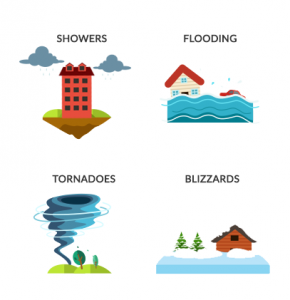
Meteorologists and atmospheric scientists partake in weather prediction and issue warnings for severe weather. They understand atmospheric chemistry and physics and how they relate to weather and climate patterns.
In addition, folks in meteorologist careers analyze how weather influences and affects human activity. Meteorologists are often grouped with climatologists and atmospheric scientists. They are often subject to longer work hours for weather emergencies.
| Average Salary | $79,400 ($50,000 to $120,000) |
| Percent of Earth Science Careers | 1.6% |
| Job Trend | Faster than average |
| Level of Education | Bachelor’s Degree or higher |
| Work Setting | Office, outdoor or weather stations |
9. Hydrogeologists
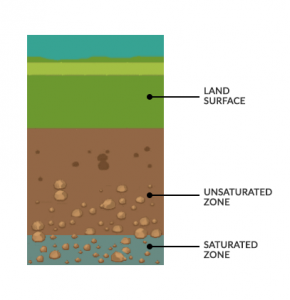
Hydrogeologists or groundwater specialists specialize in how soil and rock relate to groundwater. For example, this includes the distribution and transportation of water to the surface.
Hydrogeologist careers often undergo environmental investigations and remediation by collecting groundwater samples. For example, they may work in the field assessing water quality, contamination, and borehole sites.
| Average Salary | $74,100 ($50,000 to $120,000) |
| Percent of Earth Science Careers | 1.5% |
| Job Trend | Faster than average |
| Level of Education | Bachelor’s Degree or higher |
| Work Setting | Office, outdoor, or laboratory |
10. Ecologists
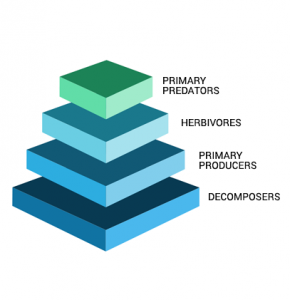
Ecologists understand how organisms relate to each other in their physical environment. For example, they assess population dynamics in a built or natural environment giving advice to policymakers or baseline studies.
In an ecologist career, you will work in all aspects of the environment. For instance, they may conduct studies on wetlands, lakes, ponds, flora, and fauna. Their observations may include wildlife, birds, mammals, amphibians, or reptiles.
| Average Salary | $72,600 ($45,000 to $110,000) |
| Percent of Earth Science Careers | 1.4% |
| Job Trend | Average |
| Level of Education | Bachelor’s Degree or higher |
| Work Setting | Office, outdoor, or laboratory |
11. Anthropologists

Anthropologists study how humans and societies behave in the past, present, and future. By conducting archaeological and excavation surveys, they better understand Earth’s cultural resources. With greater knowledge of the past, we can improve historic preservation.
Anthropologist careers work with archaeologists and can have extended periods of time in the field. They often conduct research and work in either government and consulting fields.
| Average Salary | $62,300 ($40,000 to $100,000) |
| Percent of Earth Science Careers | 1.0% |
| Job Trend | Faster than average |
| Level of Education | Bachelor’s Degree or higher |
| Work Setting | Office or outdoor |
12. Toxicologists and epidemiologists

Epidemiologist or toxicology careers understand how poisonous substances affect living organisms. They assist in reducing people’s exposure to chemicals that pose risks to our health.
For example, this can include our water, air, and land. Epidemiologists investigate patterns of a disease to prevent the spread that affects public health. During epidemic outbreaks, they work for extended periods of time with the risk of contact with a disease.
| Average Salary | 69,700$ ($50,000 to $110,000) |
| Percent of Earth Science Careers | 0.7% |
| Job Trend | Faster than average |
| Level of Education | Bachelor’s, Master’s Degree or higher |
| Work Setting | Office, outdoor, or laboratory |
13. Geophysicists
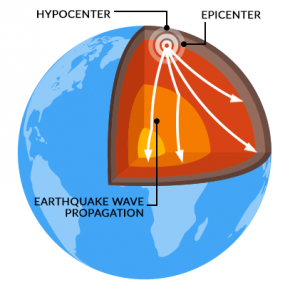
A geophysicist is a scientist who explores the physical properties and processes of the Earth and other planets using principles of physics and mathematics.
Geophysicist career studies the physical processes that relate to Earth and its surrounding space. They work in seismic, marine, and gravity investigations.
For example, A geophysicist might use seismic data to analyze the Earth’s subsurface and identify potential oil or mineral deposits for resource exploration.
| Average Salary | $69,400 ($60,000 to $140,000) |
| Percent of Earth Science Careers | 0.7% |
| Job Trend | Average |
| Level of Education | Bachelor’s Degree or higher |
| Work Setting | Office or outdoor |
14. Marine biologists
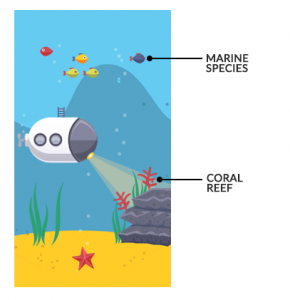
A marine biologist is a scientist who studies marine ecosystems, marine life forms, and the ocean’s physical and chemical properties to understand and conserve ocean environments.
Marine biologists specialize in how life in the oceans behaves in their natural habitats. They often work at sea collecting biological samples and recording fish distributions.
Marine biologists collect aquatic samples or observations for marine conservation. For example, they study the effects of eutrophication on marine species and habitats.
| Average Salary | $53,900 ($45,000 to $100,000) |
| Percent of Earth Science Careers | 0.6% |
| Job Trend | Average |
| Level of Education | Bachelor’s Degree or higher |
| Work Setting | Ocean, Office, outdoor, or laboratory |
15. Hydrologists
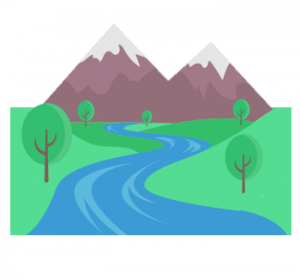
A hydrologist is a scientist who investigates the distribution, movement, and quality of water in the Earth’s surface and subsurface, addressing issues related to water resources and environmental sustainability.
Hydrologists analyze how water travels in relation to land and how it impacts people. This may include water availability and risks like drought and flood protection. Hydrologists often work in the field.
For example, they collect water quality samples at lakes, streams, and groundwater wells. In the office, they construct hydrologic models to mitigate water resource risk.
| Average Salary | $65,100 ($50,000 to $100,000) |
| Percent of Earth Science Careers | 0.5% |
| Job Trend | Faster than average |
| Level of Education | Bachelor’s Degree or higher |
| Work Setting | Office, outdoor, or laboratory |
16. Arborists
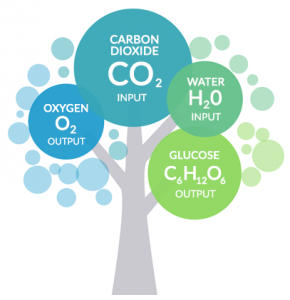
An arborist is a specialist in the cultivation, care, and maintenance of trees, focusing on their health, safety, and overall well-being within urban and natural environments.
Arborists specialize in individual trees, shrubs, vines, and other perennial woody plants. They understand how to cultivate and how they respond to cultural practices.
Even though some arborists may climb trees for inspection, others are responsible for habitat restoration and land stewardship. Arborists work in remote areas and urban environments.
| Average Salary | $48,900 ($30,000 to $60,000) |
| Percent of Earth Science Careers | 0.5% |
| Job Trend | Average |
| Level of Education | Certification or Bachelor’s degree |
| Work Setting | Office or outdoor |
17. Geographers
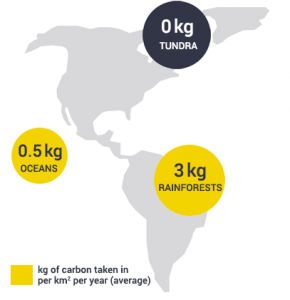
A geographer is a professional who studies the Earth’s physical and cultural landscapes, examining the spatial relationships and patterns of human and natural phenomena across the globe.
Geographers pay special attention to “where” to locate on Earth. By using GIS software, they store physical and built features in the world all in a database. From here, they can analyze and display Earth’s features on a map.
There’s been a significant expansion in GIS jobs over the years. Including GIS positions, geographers would be much higher on the list. On occasion, geographers work in the field.
| Average Salary | $65,400 ($50,000 to $100,000) |
| Percent of Earth Science Careers | 0.5% |
| Job Trend | Slower than average |
| Level of Education | Bachelor’s Degree or higher |
| Work Setting | Office or outdoors |
18. Botanists
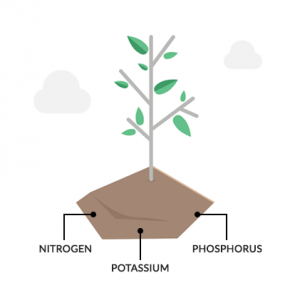
A botanist is a scientist who specializes in the study of plants, including their classification, growth, development, and ecological roles within ecosystems.
Botanists specialize in classifying plants and how they grow. For example, they perform various types of studies on plant growth and weed control.
They also conduct scientific experiments on plants to better understand how organisms live and grow in a laboratory or outdoor environment.
| Average Salary | $71,900 ($40,000 to $100,000) |
| Percent of Earth Science Careers | 0.3% |
| Job Trend | Average |
| Level of Education | Bachelor’s Degree or higher |
| Work Setting | Office, outdoor, or laboratory |
19. Geomorphologists
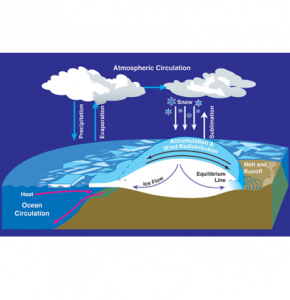
A geomorphologist is a scientist who investigates and analyzes the Earth’s landforms, surface processes, and the evolution of landscapes to understand the dynamic forces that shape the Earth’s surface.
Geomorphologists assess the creation and evolution of landforms on Earth. For example, they specialize in physical features and geological structures.
Before construction, they often consult engineers to better understand the landscape. Geomorphologists are often categorized in the group of geoscientists.
| Average Salary | $73,800 ($50,000 to $100,000) |
| Percent of Earth Science Careers | 0.2% |
| Job Trend | Average |
| Level of Education | Bachelor’s Degree or higher |
| Work Setting | Office, outdoor, or laboratory |
20. Oceanographers
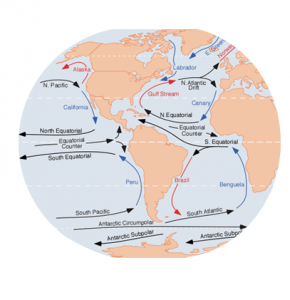
Oceanographers understand how the physical and biological properties of oceans interact. This may include anything from marine ecosystems, ocean currents, and fluid dynamics.
They often assist in oceanographic observation programs including the instrumentation system and design. Similar to marine biologists, oceanographers may collect water samples or prepare tidal equipment for marine observations.
| Average Salary | $59,500 ($50,000 to $100,000) |
| Percent of Earth Science Careers | 0.2% |
| Job Trend | Average |
| Level of Education | Bachelor’s Degree or higher |
| Work Setting | Office, outdoor, or laboratory |
21. Geochemists
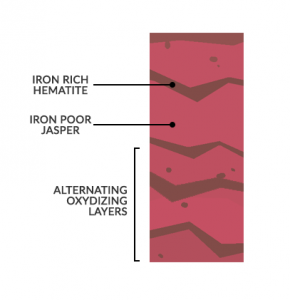
A geochemist is a scientist who explores the chemical composition and reactions of Earth materials, helping to decipher Earth’s history, environmental processes, and natural resource management.
Geochemists characterize minerals and elements from environmental samples taken in the field. In the laboratory and office, they may examine samples taken from the field and generate reports.
From samples, they can understand the age and composition of rocks, minerals, and soils at a molecular level.
| Average Salary | $76,300 ($50,000 to $120,000) |
| Percent of Earth Science Careers | 0.2% |
| Job Trend | Average |
| Level of Education | Bachelor’s Degree or higher |
| Work Setting | Office, outdoor, or laboratory |
22. Petrologists
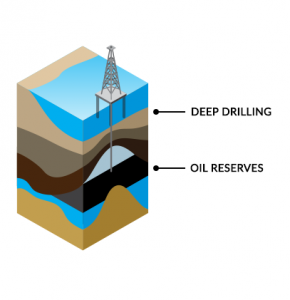
A petrologist is a geologist who specializes in the study of rocks and their origins, classification, and distribution within the Earth’s crust.
Petrologists investigate how igneous, metamorphic, and sedimentary rocks form specific to oil and natural gas. They are knowledgeable in rock formations and the geologic era they may have formed.
Their main focus is on petrol extraction as a resource. The number of petrologist jobs often varies significantly based on the price of oil. It’s a fluctuating career that ranges from sparse to bountiful job opportunities.
| Average Salary | $78,500 ($50,000 to $120,000) |
| Percent of Earth Science Careers | 0.1% |
| Job Trend | Average |
| Level of Education | Bachelor’s Degree or higher |
| Work Setting | Office, outdoor, or laboratory |
23. Zoologists
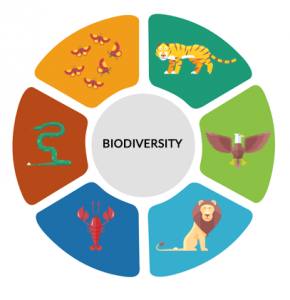
A zoologist is a scientist who investigates the biology, behavior, classification, and conservation of animals, including their diverse species and ecosystems.
Zoologists study the evolution, classification, and distribution of animals in an environment. As humans disturb habitats, animals are at risk of being extinct now more than ever.
By knowing how animals behave, zoologists are a key piece in conservation efforts around the world. Despite the need for increased conservation efforts, zoologists represent a small percentage of earth science jobs.
| Average Salary | 65,900$ ($50,000 to $100,000) |
| Percent of Earth Science Careers | 0.1% |
| Job Trend | Average |
| Level of Education | Bachelor’s Degree or higher |
| Work Setting | Office, outdoor, or laboratory |
24. Paleontologists

A paleontologist is a scientist who studies the history of life on Earth by examining fossils and ancient remains to understand the evolution and biodiversity of past organisms.
Paleontologists understand how organisms evolve and their interactions in their environment. They also investigate the origin of species by tracing life back to their fossil records.
Jobs in paleontology require significant time in the field by studying fossil records often found in rocks. Unfortunately, there are sparse job offerings for paleontologists.
| Average Salary | 61,300$ ($50,000 to $100,000) |
| Percent of Earth Science Careers | 0.1% |
| Job Trend | Average |
| Level of Education | Bachelor’s Degree or higher |
| Work Setting | Office or outdoor |
25. Limnologists
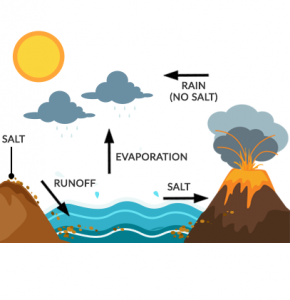
Limnologists investigate the biological, chemical, and physical properties of lakes and ponds. By collecting water quality samples, they relate these readings to terrestrial surroundings.
They often work in fisheries, marine biology, and environmental consulting. Limnologists often write reports, calculate statistics and program computer models. They may work near bodies of water and do extensive traveling for work.
| Average Salary | $71,800 ($40,000 to $90,000) |
| Percent of Earth Science Careers | 0.1% |
| Job Trend | Average |
| Level of Education | Bachelor’s Degree or higher |
| Work Setting | Office, outdoor, or laboratory |
26. Seismologists

Seismologists interpret how seismic waves travel through and around the Earth from earthquakes. In addition, they understand plate tectonics and identify rupture mechanisms and fault structures.
Job postings for seismologists are infrequent. They generally work with volcanologists in research, government, and safety.
Seismologists perform various types of fieldwork. In the field, they have to set up various types of instruments.
| Average Salary | $63,400 ($60,000 to $130,000) |
| Percent of Earth Science Careers | 0.1% |
| Job Trend | Average |
| Level of Education | Bachelor’s Degree or higher |
| Work Setting | Office or outdoor |
27. Sedimentologists and stratigraphers
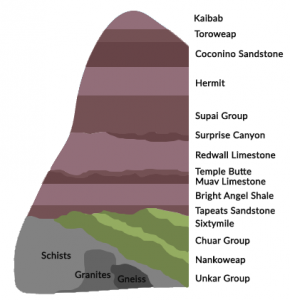
A sedimentologist is a scientist who specializes in the study of sedimentary rocks, their formation, characteristics, and the processes that shape them, providing insights into Earth’s history and environmental changes.
Sedimentologists and stratigraphers inspect how strata and rocks are layered through geologic time. In addition, they focus on resource extraction and exploration.
In contrast, stratigraphers measure how sand, silt, and clay are deposited. Sedimentologists and stratigraphers are not very common positions in Earth Science. Sedimentologists often work in architectural, engineering, and government services.
| Average Salary | $84,700 ($50,000 to $120,000) |
| Percent of Earth Science Careers | <0.1% |
| Job Trend | Average |
| Level of Education | Bachelor’s Degree or higher |
| Work Setting | Office, outdoor, or laboratory |
28. Climatologists

Climatologists examine the variation of weather patterns in the past, present, and future. By understanding long-term weather, we can learn how climate change will affect the future.
This could involve analyzing water and air quality samples at a local or global scale. Despite the state of climate change, climatologist careers are infrequent. However, meteorologists and atmospheric scientists are closely related to climatologists.
| Average Salary | $74,500 ($50,000 to $100,000) |
| Percent of Earth Science Careers | <0.1% |
| Job Trend | Faster than average |
| Level of Education | Bachelor’s Degree or higher |
| Work Setting | Office or outdoor |
29. Volcanologists
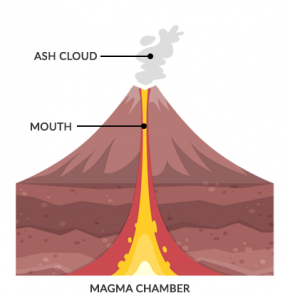
Volcanologists study how and where volcanoes and related phenomena (lava, magma) erupt and form (past and present). They may work with seismic data and plate tectonics.
Their primary focus is reducing or mitigating the negative impacts related to a volcano eruption. As volcano safety risk is already quite low, volcanologist careers are uncommon.
They often work with seismologists in research, government, and safety.
| Average Salary | $64,700 ($50,000 to $120,000) |
| Percent of Earth Science Careers | <0.1% |
| Job Trend | Average |
| Level of Education | Bachelor’s Degree or higher |
| Work Setting | Office or outdoor |
30. Astronomers
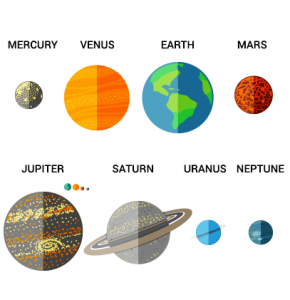
An astronomer is a scientist who observes, studies, and explores celestial objects and phenomena beyond Earth’s atmosphere to understand the universe’s structure, origins, and evolution.
Astronomers have their eyes set on the stars and solar system. They study how planet Earth relates to our universe and solar system in space and time.
Astronomers may focus on other types of life that exist in the solar system or on other planets. They can also focus on how matter and energy interact including time and the origin of space.
| Average Salary | $101,200 ($50,000 to $150,000) |
| Percent of Earth Science Careers | <0.1% |
| Job Trend | Faster than average |
| Level of Education | Ph.D., Master’s Degree or higher |
| Work Setting | Office, outdoor, or laboratory |
Where will you start your earth science career?
You have the chance of a lifetime to start your journey with an exciting career in Earth Science.
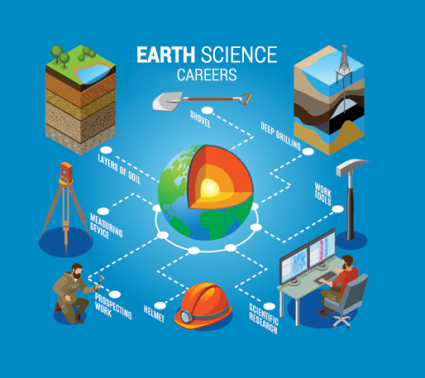
Do you want to cement a position in one of the more established areas like geology, biology it forestry?
Or do you want to carve out a career in one of the more specialized niches like seismology, geochemistry, or astronomy?
Now, it’s your turn. Where will you start your Earth Science career?
REFERENCES: Number of Jobs: (Indeed Job Search), Salary Data: (The Bureau of Labor Statistics)


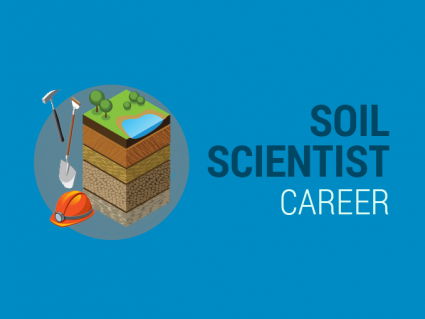
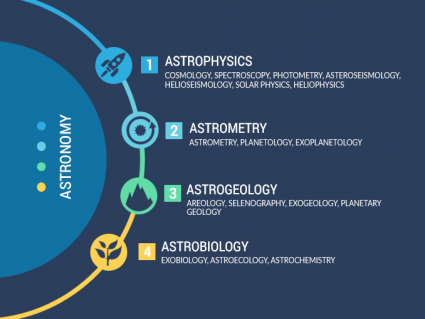
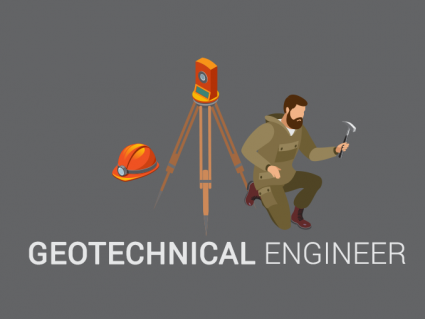

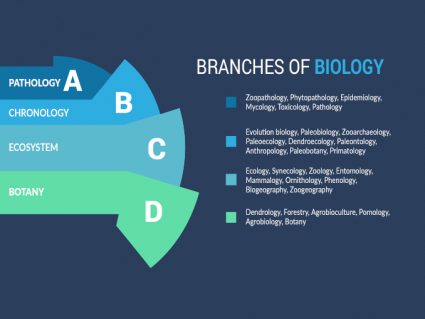


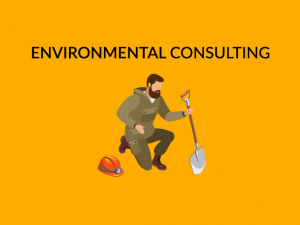
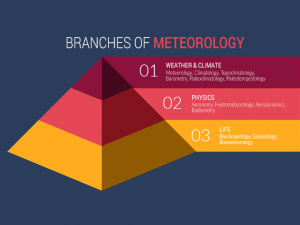
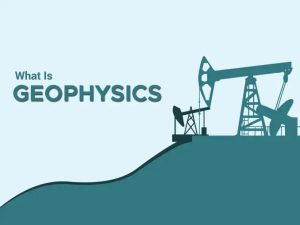

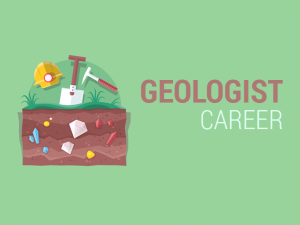
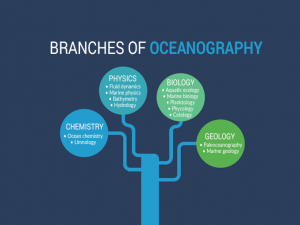
I love all of them
Nice selection
is good
Astronomers because it pays the most.
Man, who knew that astronomers got paid so much?
I’m not sure what career I want
Lots of great ideas for earth and science jobs
Great website for students who have an idea on the type of career they are interested, but not quite sure of the name of the field of study.